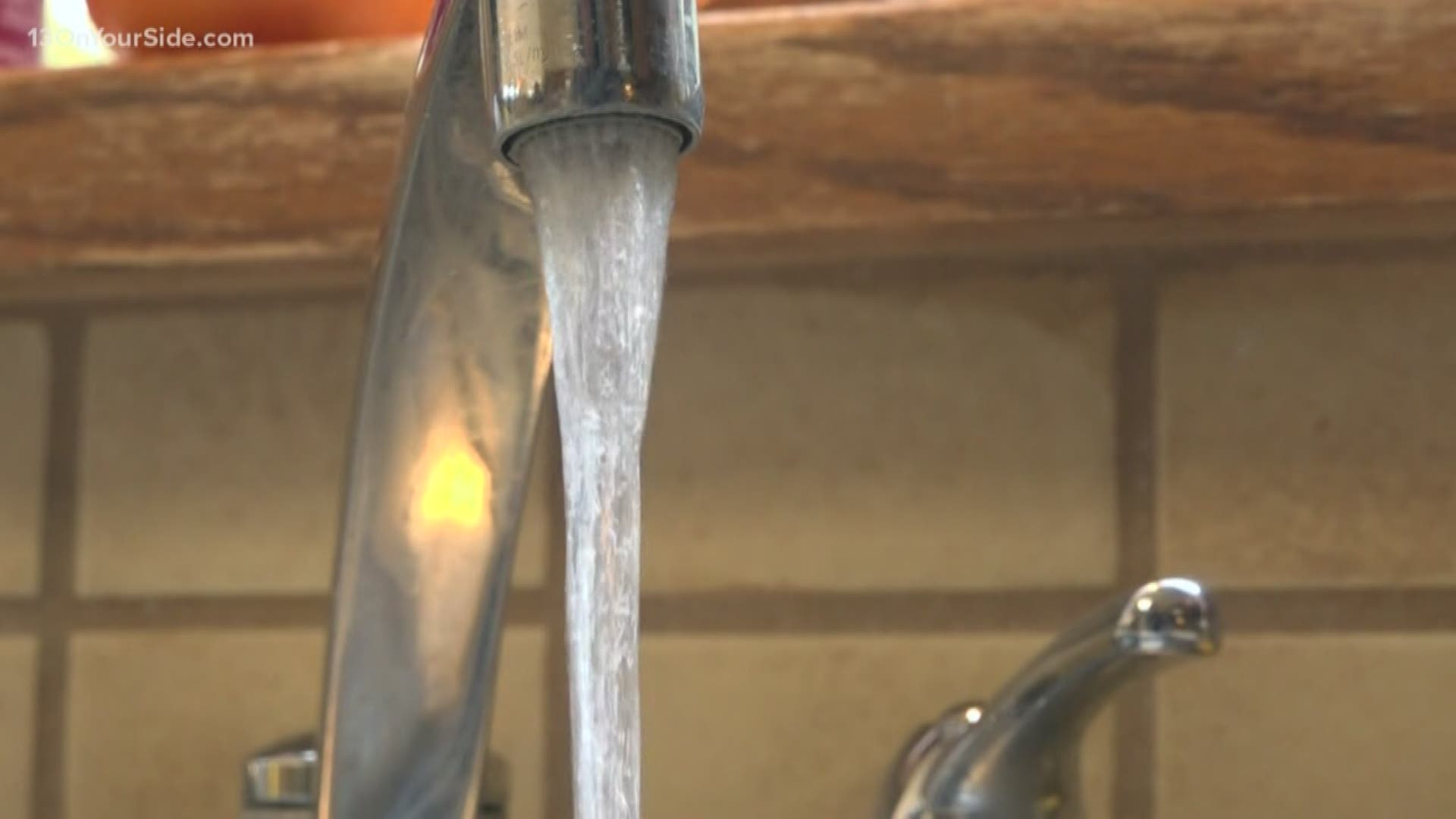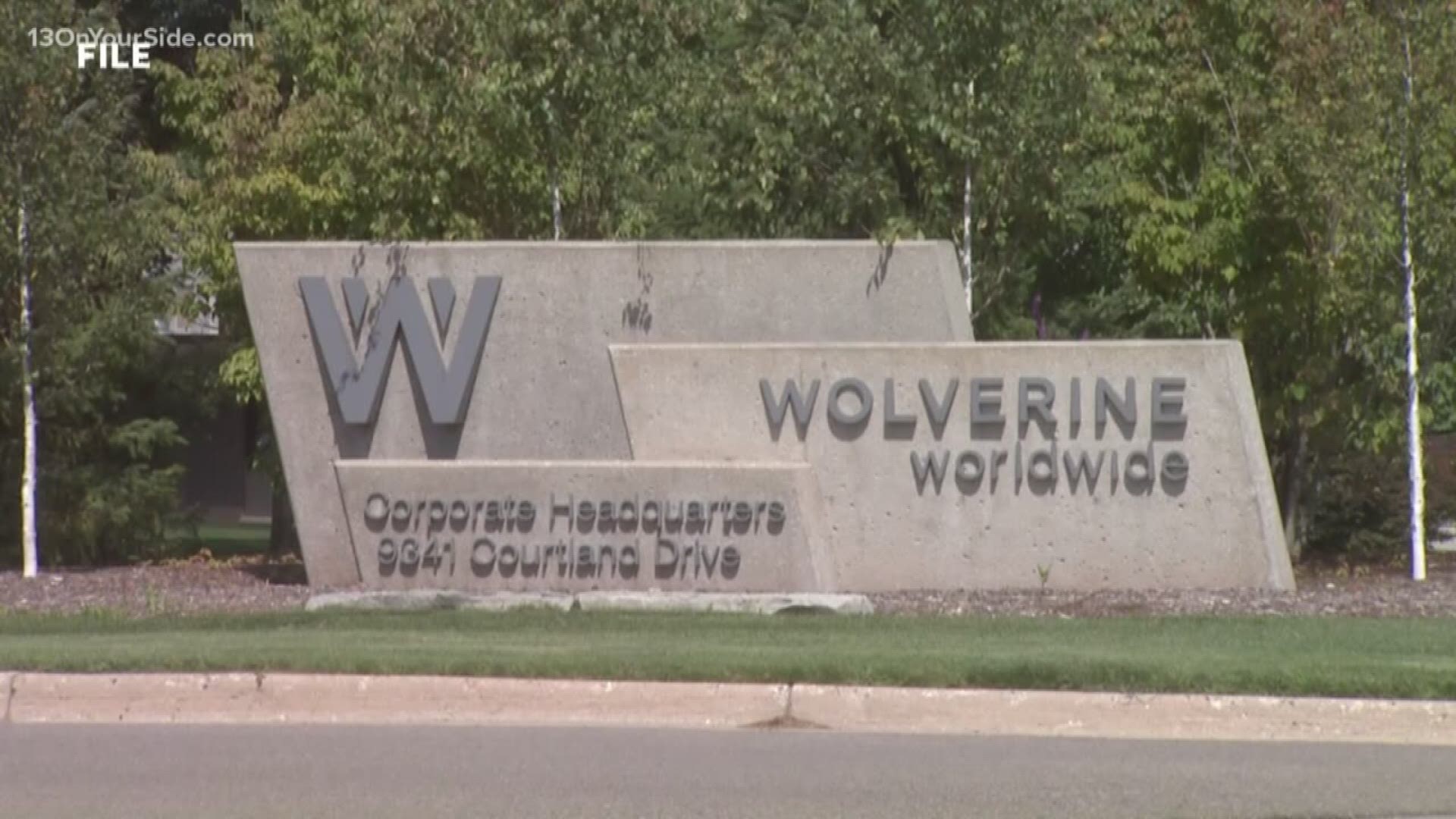WASHINGTON — The U.S. House of Representatives passed a bill Friday that would designate per- and polyfluoroalkyl (PFAS) chemicals as hazardous substances and it would set a national drinking water regulation.
The bill, called PFAS Action Act of 2019, was introduced by three Michigan members of congress: Rep. Debbie Dingell (D-Detroit), Rep. Fred Upton (R-St. Joseph) and Rep. Dan Kildee (D-Flint).
The House voted 247-159 to approve it—223 Democrats and 24 Republicans.
PFAS contaminants are an emerging environmental concern. They are compounds that are used by industries such as tanneries, metal platers and clothing manufacturers.
The bill would require the Environmental Protection Agency to designate PFAS a hazardous substance under the federal Superfund law, which would allow the EPA to clean up up contaminated sites.
The contaminants have been a focus in Michigan ever since they were discovered in drinking water wells in Northern Kent County in 2017. They had seeped into the groundwater after decades after Wolverine Worldwide dumped waste decades before in a nearby landfill. Wolverine is paying nearly $70 million to the townships of Plainfield and Algoma in a settlement over the contamination.
State officials then ramped up efforts to determine the scope of PFAS contamination in Michigan. The Michigan Department of Environment, Great Lakes and Energy spent a year testing community, school, child care and tribal water supplies. The $1.7 million study found that 90% of water supplies across the state showed no detection of PFAS.
Only the city of Parchment and Robinson Elementary School near Grand Haven had test results exceeding the U.S. Environmental Protection Agency's lifetime advisory of 70 parts per trillion (ppt).
The city of Parchment is in Upton's district.
“Right in our backyard, the city of Parchment, Michigan became ground zero for PFAS contamination. This issue is serious, and today Congress took action to better protect our communities from PFAS by passing the bipartisan PFAS Action Act,” Upton said in a statement, which explained that the legislation will allow the EPA to clean up sites in Michigan and nationwide.
"Parchment made it perfectly clear that we need an all-hands-on deck to protect our families, drinking water, and environment, and I will continue to work with my colleagues on both sides of the aisle to address this challenge across the nation,” he said.
Likewise, Robinson Elementary School is represented by congressman Bill Huizenga (R-Zeeland). He said that West Michigan, in particular, has seen the negative impact of PFAS, which is why he voted to approve the bill.
“While I don’t agree with every facet of this bill, the science behind the threat posed by PFAS is clear. As the EPA continues working on measures to address this hazardous ‘forever’ chemical, it is critical for Congress to work in a bipartisan manner to protect West Michigan, the Great Lakes, and communities across the nation from contamination," he said in a statement. "This includes supporting the advancement of research and potential large scale decontamination efforts. Michigan has been at the forefront of PFAS testing and I remain concerned that other communities will be impacted similarly to what we have seen here in West Michigan.”
Rep. Justin Amash (I-Grand Rapids), who represents the area in northern Kent County that was a hotbed for PFAS, voted against the bill saying he believe it would have "unintended consequences."
"The federal government has a role in addressing the proliferation and consequences of PFAS, and the EPA has considerable authority to respond to pollutants under current law," he said in a statement. The congressman pointed to December's National Defense Authorization Act as evidence of bipartisan support for the government to respond to PFAS. He said, though, H.R. 535 was not drafted as "consensus legislation."
"The bill’s approach seriously risks creating unintended consequences for human welfare, such as by preventing the development of new, safer chemicals while allowing existing PFAS to continue to be manufactured. Regulations should be supported by current science," he said.
Rep. John Moolenaar, a Republican who represents Michigan's 4th district, also voted against the bill.
More stories about PFAS from 13 ON YOUR SIDE:
RELATED VIDEO:
►Make it easy to keep up to date with more stories like this. Download the 13 ON YOUR SIDE app now.
Have a news tip? Email news@13onyourside.com, visit our Facebook page or Twitter. Subscribe to our YouTube channel.


